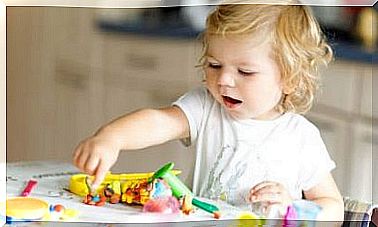Tips To Help Your Children Start Reading

Reading is one of the most important abilities a child can acquire. Here we have gathered some important advice for parents who want to help their children start reading.
Regardless of the method used, these tips are both universal and useful.
Read together as often as possible
As a parent, it is important to develop a routine where you read a book with your child in the morning or in the evening. You can start by reading aloud, but let the child participate by following the text with one finger.
It helps children feel that they are part of the activity, even if they can not read at the same speed as you. In addition, it helps them begin to identify letters and words better and better.
Enjoy the time you read together and share the moment with your children. Remember to schedule a reading time for the family where everyone feels a sense of closeness when reading their own book.
Sometimes half an hour is all you need, but make sure you read. Only then do you transfer the habit to your child. This is much more effective than any strict reading activity.

The reading material must interest your child to start reading
If your child has a favorite subject, find a book that deals with this to increase motivation. Look for reading material about the child’s favorite interests and use this to cultivate his or her interest in books.
Let them choose their own books
When children have the chance to make their own decisions, they feel more at home in their learning process and become more willing to participate to a greater extent.
Taking the kids to the library and bookstore and encouraging them to explore the books can be a wonderful activity for children as they become interested in reading.
Keep track of their progress in reading
As your child begins to read, you should try to encourage him or her to read increasingly challenging books. The child should go from reading books with one word per page to books that have increasingly longer sentences. This should continue until the child can handle entire chapters.
If you have doubts about whether a book is right for your child’s reading level, try counting the number of words per page that the child does not understand. You can also use the opposite strategy and count the number, for the child, familiar words per page.
Talk about what you see on the page
Another useful activity is to use books as a way to stimulate conversation on a particular topic. After reading, talk for a while about what you are reading, or bring it up at another time.
For example, you can use a notebook where you write down the new words that appear with illustrations or drawings, as well as words that are not explicitly written in the book.
This makes the words easier to remember as there will be a visual and chronological context.
Avoid comparing them to their peers
All children learn to read at their own pace. Reading is a personal and individual experience where children begin to understand things for themselves and learn more about how stories work as they develop stronger skills.
Therefore, it is not at all good to compare children with their peers. It is unnecessary and inefficient. Every child learns at his own pace, and it must be respected.

Do not push them
Forcing children to start reading before they are ready can do more harm than good. Coercion is always a demotivating force. Children without proper motivation will not experience any activity pleasant or enjoyable and they may not want to do it again.
Talk to the child’s teacher
If your child does not like to read and has problems reading words at first sight, remember that this may be due to a specific learning difficulty.
If you encounter such a situation, you should first talk to your child’s teacher. The teacher can assess the situation professionally and may recommend an evaluation by a specialist.
In summary, parents with children who learn to read should primarily read with them and make the activity a part of everyday life. Encourage your children to choose their own reading material and do not force them to read.
By following these simple tips, you can make an important contribution to your child’s acquisition of this basic life ability.









